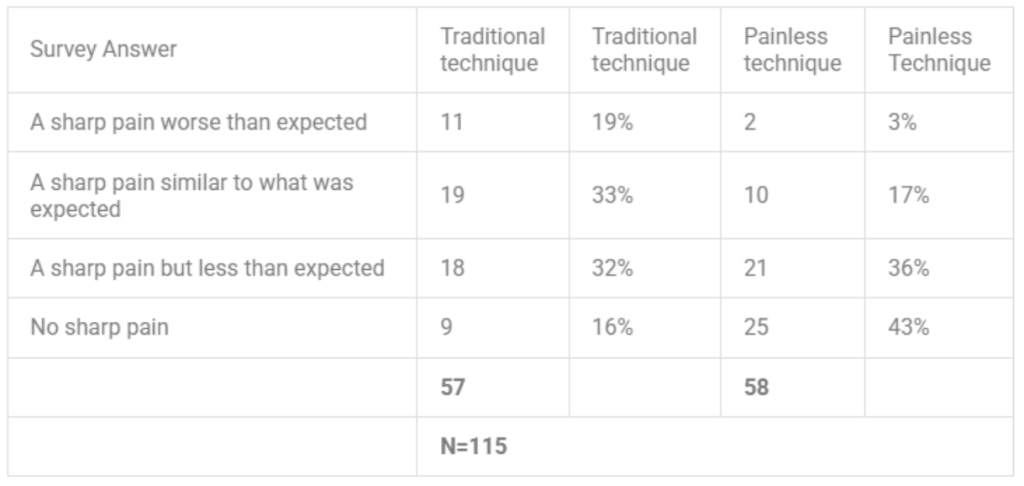Table of Contents
ToggleVasectomy is becoming an increasingly common choice for permanent contraception among men in Australia. In fact, around one in four Australian men over the age of 40 have had the procedure, with more than 30,000 vasectomies performed nationwide each year.
So, what’s behind the rise? From the convenience and effectiveness of the procedure to changing perspectives on shared reproductive responsibility, this blog explores why vasectomy is gaining popularity and what it might mean for you.
What Is a Vasectomy?
A vasectomy is a minor surgical procedure that cuts and separates the vas deferens, the tubes that carry sperm from the testicles. This prevents sperm from being present in the ejaculate, making fertilisation impossible during sex.
The procedure is usually done in a clinic under local anaesthetic and takes less than 30 minutes. Most people experience only mild discomfort and can return to normal activities within a couple of days. It’s considered a permanent form of contraception, although vasectomy reversals are sometimes possible.
Why More Men Are Choosing Vasectomy
Several factors are contributing to the increased popularity of vasectomy in Australia:
Long-Term Cost Savings
Unlike ongoing costs associated with condoms, pills, or IUDs, a vasectomy is a one-off procedure. While upfront vasectomy costs range from $550–$1000, depending on the clinic and Medicare coverage, the long-term savings make it a cost-effective choice.
High Effectiveness
Vasectomy is more than 99.9% effective at preventing pregnancy. Once a follow-up semen analysis confirms that sperm are no longer present in the ejaculate, couples can rely on it as their sole method of contraception.
No Ongoing Maintenance
Unlike hormonal methods or devices that require replacement every few years, vasectomy doesn’t need any ongoing follow-up (except for the initial sperm clearance check). There’s no daily pill to remember and no need for prescriptions or repeat appointments.
Reduced Burden on Female Partners
For many couples, vasectomy is a way to share the responsibility of contraception. It spares female partners from the side effects of hormonal contraception, as well as the physical demands of pregnancy, labour, and childbirth.
Low Risk, Quick Recovery
Modern vasectomy techniques, including no-scalpel and open-ended procedures, are minimally invasive and offer a quick recovery. Most men who work in an office return to work within 1–2 days, and for active physical workers, they can return to work in 1-2 weeks. Complications are rare.
Is Vasectomy Effective?
Yes, a vasectomy is one of the most effective forms of contraception available. However, it’s not immediately effective. Sperm can remain in the vas deferens for several months after the procedure, which is why a semen analysis is required (usually 12 weeks post-op) to confirm sperm clearance.
Until a zero sperm count is confirmed, it’s essential to use another form of contraception.
Changing Attitudes Towards Male Contraception
The rise in vasectomies reflects a broader cultural shift. Increasingly, men are:
- Taking an active role in family planning
- Choosing a vasectomy to support their partner’s health and autonomy
- Viewing contraception as a shared responsibility
Public awareness campaigns, patient education, and the availability of telehealth consults are also helping normalise the decision to undergo a vasectomy. What was once viewed as a last resort is now being seen as a smart, practical option, particularly for men who are sure they don’t want more (or any) children.
Is Vasectomy the Right Choice for You?
Vasectomy may be a good option if:
- You’re certain you don’t want children or don’t want more
- You want a long-term, low-maintenance contraception method
- You and your partner are looking to reduce reliance on hormonal birth control
- You’re comfortable with the decision being permanent
It’s not recommended for those who may want to have children in the future, even though reversals are sometimes possible. A vasectomy should always be considered permanent.
Summary
Vasectomy is gaining popularity across Australia, and for good reason. It’s a highly effective, low-maintenance, and cost-efficient form of male contraception. As more men take an active role in family planning and shift toward shared responsibility, vasectomy offers a permanent solution that supports long-term reproductive choices.
If you’re considering a vasectomy, speak with your doctor or a qualified provider about what’s involved and whether it’s right for you.
Disclaimer: The information in this article is general and should not be relied upon as medical advice. For personal recommendations, consult your healthcare provider.






How soon after vasectomy can I stop using other contraception?
After 12 weeks, a semen test is performed to confirm the absence of sperm. Until then, other contraception should be used.
Does vasectomy affect sex drive or performance?
No. Vasectomy does not affect testosterone levels, libido, or sexual performance.
Is vasectomy covered by Medicare?
Yes, Medicare covers part of the cost of a vasectomy performed in private clinics. Some private health funds may also offer additional rebates.
Can a vasectomy be reversed?
While reversal is possible, it’s a more complex procedure and not always successful. Vasectomy should always be considered a permanent decision.



















